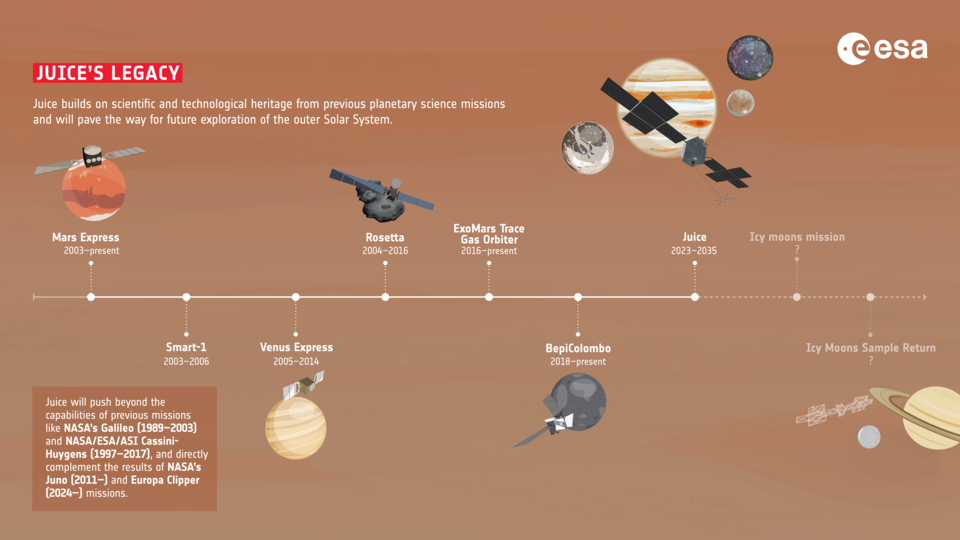Jupiter, the largest planet in our solar system, has been a target for exploration since the dawn of the space age. Its immense size, complex atmosphere, and intriguing moons have captivated scientists for decades. Numerous missions have been launched to study this fascinating gas giant.
Pioneer 10 and 11
The Pioneer 10 and 11 spacecraft, launched in 1973 and 1974 respectively, were the first to visit Jupiter. They provided valuable information about the planet’s radiation belts, magnetic field, and atmosphere.
Voyager 1 and 2
The Voyager 1 and 2 missions, launched in 1977, made groundbreaking discoveries about Jupiter. They obtained detailed images of the planet’s Great Red Spot and its swirling clouds. Additionally, Voyager 1 and 2 explored several of Jupiter’s moons, including Io, Europa, Ganymede, and Callisto.
Galileo
The Galileo spacecraft, launched in 1989, orbited Jupiter for eight years, providing the most comprehensive study of the planet to date. Galileo’s mission included the release of the Galileo Atmospheric Probe, which descended into Jupiter’s atmosphere to collect data.
Juno
The Juno spacecraft, launched in 2011, entered Jupiter’s orbit in 2016. Its primary goal is to study the planet’s atmosphere, magnetic field, and the formation of its Great Red Spot. Juno has also provided valuable insights into Jupiter’s moons, including Europa, which is believed to have a subsurface ocean.
Future Jupiter Missions
There are several planned future missions to Jupiter. The Europa Clipper, scheduled for launch in 2024, will conduct a detailed study of Europa, searching for signs of habitability. The JUICE (Jupiter Icy Moons Explorer) mission, scheduled for launch in 2023, will explore Ganymede, Europa, and Callisto, focusing on their potential for harboring life.
Jupiter remains a fascinating and enigmatic planet. As we continue to explore this gas giant, we can expect to make new and exciting discoveries about our solar system.
